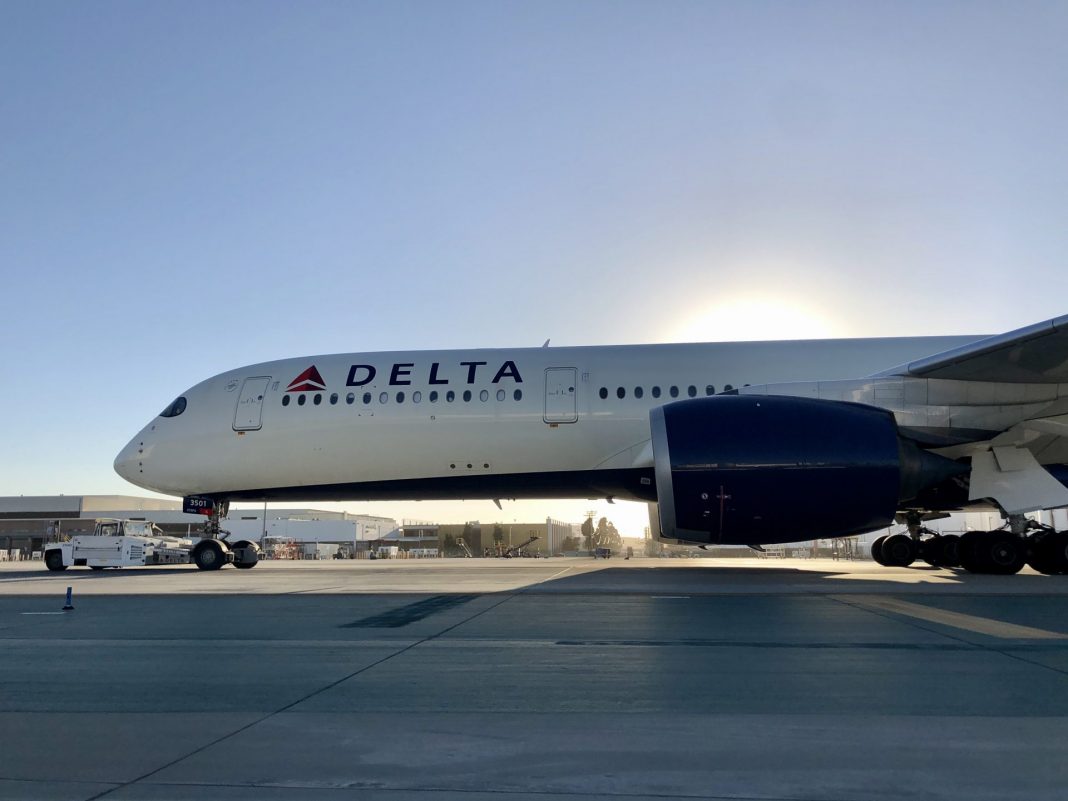By Vanni Gibertini
Delta Accused Of Penalizing Pilots Requesting Simulator Training After COVID-19 Hiatus
As airlines slowly try to resume a semblance of normality after the collapse of demand experienced during the peak months of the COVID-19 pandemic, more and more issues are surfacing with regards to crew proficiency.
Some Delta Air Lines pilots have been reporting that the airline has been punishing them for requesting some retraining in company-owned simulators before returning to the air, the financial magazine Forbes reports. However, the airline has denied any wrongdoing.
In the U.S., regulations from the national aviation watchdog Federal Aviation Administration (FAA) require a flight crew member to have performed at least three take-offs and three landings during the previous 90 days in order to be considered “current” and therefore be considered capable of operating the flights. However, with airlines having to slash up to 98% of their schedule during the months of April and May and furloughing most of their staff during that period, some of the pilots have not performed their duties for a while and are requesting simulator time in order to regain familiarity with the procedures.
The Delta Air Lines chapter of the Air Line Pilots Association, the union representing most of the pilots in the United States, has told Forbes that about a dozen pilots have seen their requests declined by the carrier, and when some pilots expressed concerns about their proficiency, they were seeing their rostering delayed, which implies a delay in their return to active duty — and, most importantly, to receiving their salaries.
Delta Air Lines is rebuking the charges, stating that requests from pilots for time in the simulators are being addressed and satisfied whenever possible within days, or at a maximum, within a couple of weeks.
The FAA has relaxed the “recency requirements” during the pandemic. Now, it is required for a pilot to perform three take-offs and three landings in a 180-day period, meaning the period stretches, as of now, to over a month before the first U.S. cases. The provision has been extended twice on request of Airlines For America, the trade association of U.S. airlines, but it will expire on July 31, when the rule will revert to its usual 90-day period applicability.
“Everybody has a different threshold for safety,” Tom Kramer, captain representative for Delta ALPA’s New York base, told Forbes. “At no time in our careers have we gone beyond 90 days without flying. For every flight, we have to sign a document that says we are fit and safe. But people are saying, ‘How can I say I am safe [when] I’ve never done this? Delta told them they didn’t have a choice, if they chose not to go, they would not fly until Delta got them to a simulator. But simulator times are not being scheduled yet.”
Fewer Pilots, But More Time
According to aviation site The Air Current, in order to overcome the flying hiatus caused by the COVID-19 pandemic, during the next 12 months, multi-fleet carriers like Delta Air Lines may require almost 70% more simulator time than they normally would, even with 20% fewer pilots.
Delta Air Lines insists that no pilot has lost pay for requesting simulator training, while rival carriers are confirming that requests for currency retraining from their flight crew are always promptly handled.
United Airlines has confirmed Forbes that it has “not exercised the exemption [granted by the FAA] for a single pilot” and it has dedicated their training center in Denver to the requalification of their pilots who had lost currency. At American Airlines, the Allied Pilots Association representing its pilots has stated that “all pilots requesting simulator retraining are being granted their requests.”
[ad_2]
Source link



